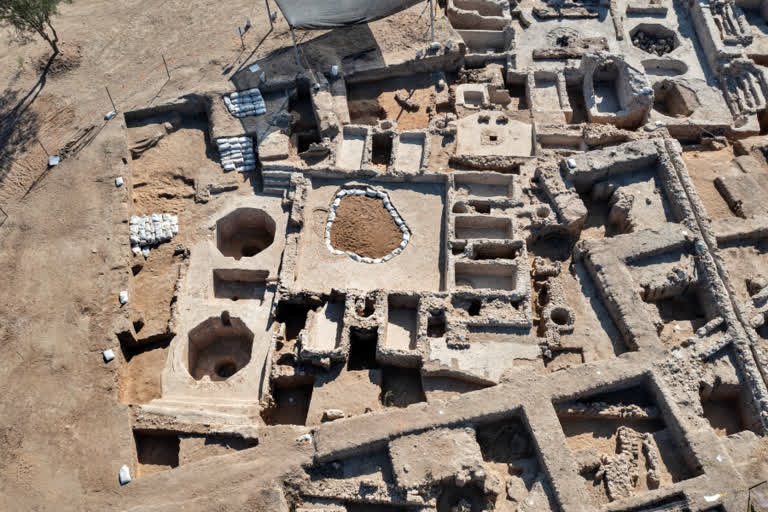Yavne (Israel): Israeli archaeologists on Monday said they have unearthed a massive ancient winemaking complex dating back some 1,500 years. Archaeologists unearthed five massive wine presses, warehouses, kilns for producing storage vessels as well a variety of jars at a dig near the city of Yavne in central Israel.
Israel's Antiquities Authority said the discovery shows that Yavne was a wine-making powerhouse during the Byzantine period. Researchers estimate the facility could produce some 2 million litres (over 520,000 gallons) of wine a year. Dr Jon Seligman, director of the excavation site on behalf of the Israel Antiquities Authority (IAA) says the size of the 225 square metre site is staggering.
Jon Seligman, one of the directors of the excavation, said the wine made in the area was known as "Gaza" wine and exported across the region. The researchers believe the Yavne location was the main production facility for the label.
Israel is plush with vineyards with over 300 wineries. A budding industry of over $40 million with a harvest of 60,000 tons of wine grapes it produces over 40 million bottles of wine, according to figures provided by the Ministry of Agriculture. Over 55% of exports are dedicated for the North American market, 35% to Europe and the rest to the Far East, according to official data.
Also read: Anicka Yi's floating Xenojellies take over Tate Modern
Seligman says in ancient times wine was more than just a tasty companion to food.
“This was a prestige wine, a light white wine, and it was taken to many, many countries around the Mediterranean,” he said, including Egypt, Turkey, Greece and possibly southern Italy.
Seligman said that wine was not just an important export and source of enjoyment in ancient times. “Beyond that, this was a major source of nutrition and this was a safe drink because the water was often contaminated, so they could drink wine safely,” he said.
More than 300 workers have been part of the daily excavation effort that has been going on for two years. The site will be covered up to protect it from rain during the autumn. It will later be accessible to the public as part of an archaeological park that is to be built in the coming years.
The antiquities authority said the complex was uncovered over the past two years during excavations being conducted as part of the development of Yavne, a town located south of Tel Aviv.
AP




